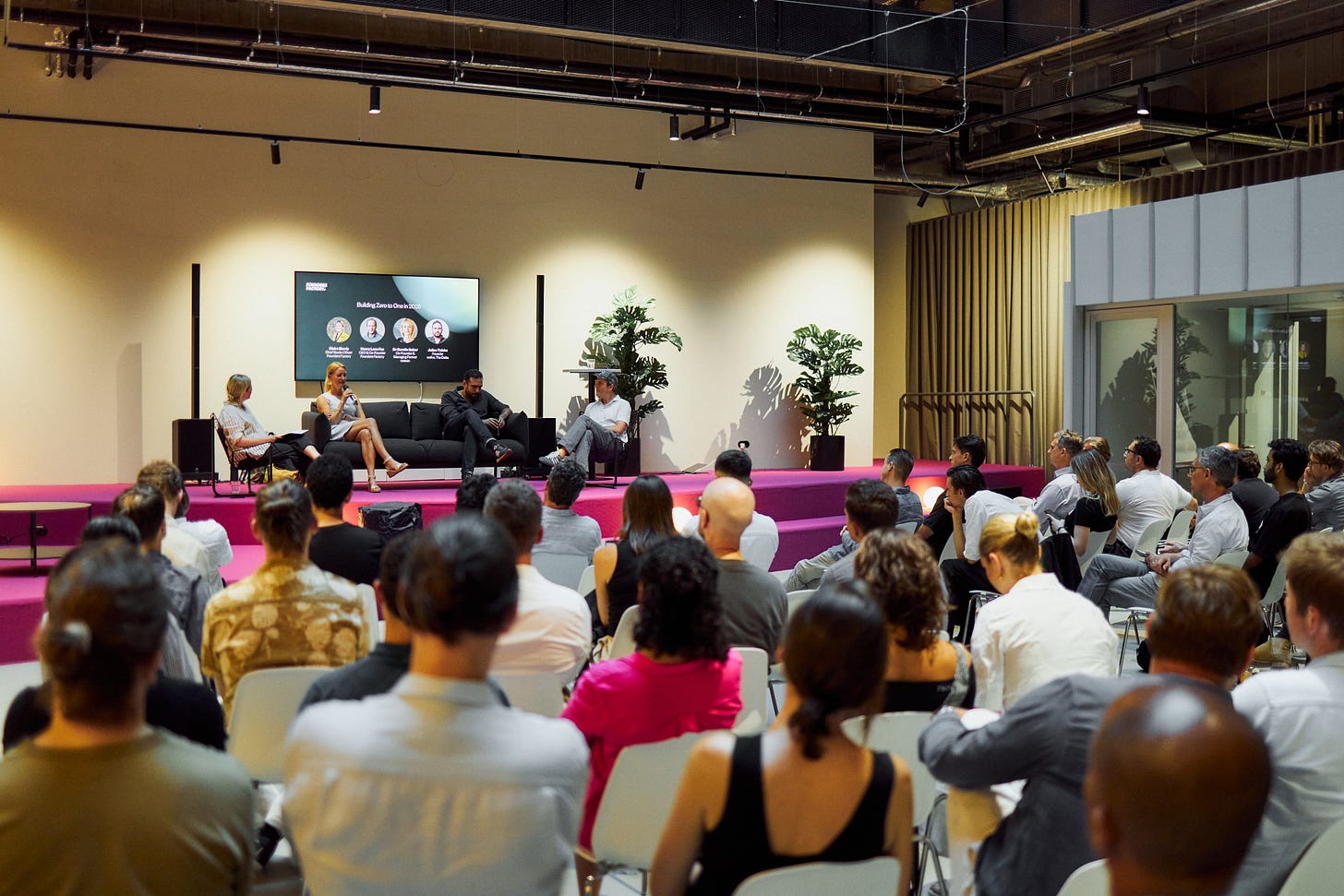This is the Startup Bulletin—written for founders, by founders. Each month we bring you a round-up of startup and investment stories, key learnings from founders, and insights from the Founders Factory team.
Welcome to the 339 new subscribers who joined us since our last newsletter! Help us grow our 20,796-strong community of founders, investors, and startup enthusiasts by sharing this post:
How heavy industry interacts with our natural environment has come under increasing focus over the last few years.
Governments—from the EU through to Australia—have introduced legislation designed at encouraging ‘best available techniques’ when it comes to emissions and their impact on air, water, and land.
So what are these best available techniques? As with any innovation, startups are best positioned to introduce transformative, even radical new processes to industry. Investing in Western Australia’s nature tech ecosystem, we’ve seen how startups are transforming the intersection between nature and industry—from the materials they use to the lasting impact it leaves.
Also in today’s Startup Bulletin:
Our top recommended reads this month
Highlights from our global portfolio
Opportunities, jobs, events in tech
🏭🌳 Four startups intersecting nature & industry
SeaStock
The problem: Cattle are the largest source of agricultural GHG emissions. Methane from their digestive processes contributes around 14% of all human-induced emissions. Previous attempts to solve this have proved ineffective or marginal at best.
The solution: Nature holds the solution—specifically, in seaweed. Asparagosis seaweed is a naturally occurring seaweed in Western Australia: when introduced to cattle diets, can reduce methane emissions by up to 90%.
SeaStock, a Fremantle-based startup, manufactures marine science solutions to produce and extract compounds derived from seaweed and algae. Beyond agriculture, their solutions promise to transform industries including cosmetics, food, and pharmaceuticals.
Call to Country
The problem: Businesses around the world often come into contact with Indigenous communities—particularly where industry intersects with Indigenous lands and heritage. Organisations increasingly recognise the importance of engaging first hand with these communities to ensure social and environment compliance.
These solutions, however, are often fragmented and inconsistent. This ranges from isolated cultural awareness training to tokenistic, compliance driven exercises, rather than true integration and engagement.
The solution: WA-based, Indigenous-led startup Call To Country are building a cultural competency platform to help businesses map their organisational needs to industry best practice approaches in order to strengthen cultural capability. Their technology platform aims to act as a ‘cultural coach in your pocket’ for on-demand advice and support.
Rainstick
The problem: The agricultural industry is facing an existential crisis—declining crop yields, erratic weather, and tightening restrictions on pesticides. The search for chemical-free, scalable methods to boost agricultural productivity continues…
The solution: Farmers and agricultural businesses should turn to nature—lightning, in particular. Rainstick has developed synthetic lightning—specifically, a Variable Electric Field Treatment (VEFTTM) technology, which uses 50,000 frequencies across 9 waveforms—to stimulate biological and electrochemical changes in seeds, enhancing germination, resilience, and overall crop performance. It also has the potential to stimulate agriculture in a number of harsh or hostile conditions, such as environments impacted by industry or extreme weather.
Co-founded by Darryl Lyons, the descendant of the Rainmaker tribe in Australia, this technology taps into age-old Indigenous wisdom around weather and agriculture.
Nitronic
The problem: Nitrogen fertiliser production currently relies largely on the Haber-Bosch method: a highly energy intensive method that consumes about 1-2% of the world's energy supply and is responsible for approximately 1.8% of global carbon emissions. Decarbonising agriculture critically starts with addressing this huge problem.
The solution: Nitronic have developed a new method for sustainable nitrogen fertiliser production, using non-thermal plasma technology. A method that significantly reduces energy requirements compared to the Haber-Bosch process.
—
Applications for our latest Nature Tech program are now open. If you are interested, or know an appropriate startup, find out more & get in touch here.
📚 Our recommended reading list
No Rivals: The Founders Fund Story (The Generalist)
Why Did Microsoft Invest In OpenAI? (Ed Zitron)
Shipping is one of the world’s dirtiest industries – could this invention finally clean up cargo fleets? (The Guardian)
🚀 Highlights from our Global Portfolio
Dronamics were selected for equity investment of up to €30M by the European Innovation Council, as they look to expand their groundbreaking drone airline across Europe
Tattva received a £650K Innovate UK grant as they develop and commercialise a novel carbon-sequestering biomaterial for construction
Shop Circle were named in Sifted’s Rising SaaS 100 Rankings, among Europe’s fastest growing and most promising software companies
We hosted a roundtable breakfast event on Industrial Transformation, as part of London Climate Action Week
In Berlin, we held an event titled ‘Building in Berlin: Zero to One in 2025’, featuring a stellar panel of Julian Teicke, founder of wefox, Carolin Gabor, ex-MD of finleap, plus Founders Factory CEO Henry Lane Fox and Chief Studio Officer Claire Morris
📍 Opportunities, jobs, events
The Tech Nation Report 2025, out now: https://report.technation.io/download
Jobs
Content Lead @ Founders Factory—opportunity to shape, define, and own FF’s content and thought leadership strategy. Find out more here
Commercialisation Lead @ Founders Factory—support our early-stage portfolio to define and execute their go-to-market strategies, build early customer traction, and lay the foundations for scalable sales. Find out more here
See you next month 👋
Interested in reading more of the same? Check out the Founders Factory blog and previous newsletters.






